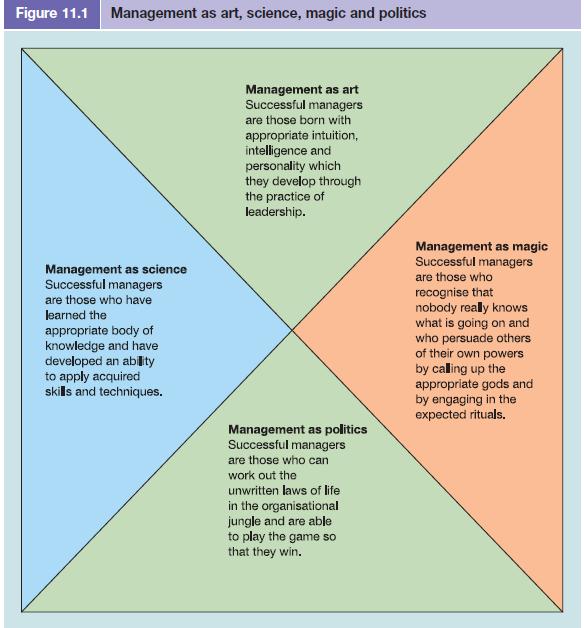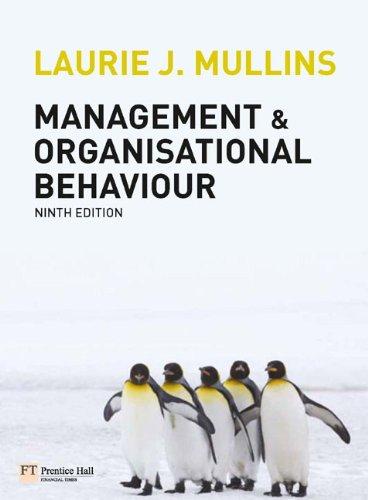Management doesnt work. It is ill-conceived and badly carried out. It is, literally, inhuman. We are all
Question:
Management doesn’t work. It is ill-conceived and badly carried out. It is, literally, inhuman. We are all wasting our time. This is the basic thrust of Charles Jacobs’ new book, Management Rewired. Inspired by the latest discoveries of neuroscientists and armed with some startling scientific data, Jacobs lines up a series of orthodoxies, takes aim and tries to destroy them. He succeeds, up to a point. We know that performance appraisals can be a pretty unsatisfactory and ineffective way of trying to manage people. We know that feedback is hard to give and harder to take. And we know that people like to be told a convincing story – or narrative – about where their organisation is heading. Jacobs provides the scientific evidence for why this might be the case. And it leads him to believe that ‘The managers who produce the best results are the ones who do the least managing . . . the biggest challenge is for managers to stop doing most of what they’re doing now.’
Why is he so confident of his argument? Scientists have established how our brains evolved and the evidence leads Jacobs to make some bold assertions.
We are animals. And because our emotional being is older and more deeply entrenched than our rational, logical side, ‘our feelings have a tendency to trump our reason’, he says. ‘At best, logic is just a way to justify conclusions we have already reached unconsciously,’ he adds. We prefer narratives: ‘Stories are the way our minds naturally work and they preceded the invention of logic as a way of making sense of the world.’
Managers must grasp this point. ‘If we use logic to influence people unconsciously driven by emotion, we probably aren’t going to be very successful in getting them to embrace our point of view,’ he writes.
Genetically speaking, we are 98 per cent chimp. Conventional management practice jars with our natures. ‘Whether we’re a chimpanzee or a corporate employee, we don’t like being controlled by others,’ he adds. Feedback is basically just upsetting. We remember the bad bits and ignore the good. Instead of standard appraisals, ‘employees should set their own objectives, critique their own performance and, if there is a performance shortfall, determine what corrective action needs to be taken’, Jacobs argues. The new role of the manager should be virtually the opposite of the old one: asking instead of ordering, providing information to enable employees to set their own objectives. ‘When it comes to organising large numbers of people, we’ll get better results if, rather than trying to thwart their natural inclinations, we just accept how people behave and make the most of it,’ he says. How could we function in a world without logic or in a business that denied the existence of objectivity? Haven’t we moved on a bit since our tree-swinging days? And isn’t rationality’s triumph over our emotions a mark of civilisation? Still, the book raises fascinating and important questions. Managers should take them seriously. A significant challenge has been thrown down. Are you chimp enough to take it up?
Discussion questions
1. Explain Jacobs’ view of management in the light of the options offered in Figure 11.1.
2. If Jacobs is correct, what are the implications for traditional management models? Take one of the models outlined in the chapter (for example Fayol’s, Brech’s, Drucker’s or Mintzberg’s) and critically evaluate it in the light of Jacobs’ argument.
Step by Step Answer:

Management And Organisational Behaviour
ISBN: 9780273728610
9th Edition
Authors: Laurie J. Mullins, Gill Christy





